ICEF2022 Program
Low-Carbon Innovation in a Time of Crises
Low-Carbon Innovation in a Time of Crises
Wednesday, October 5 - Thursday, October 6
- Opening Session
-
- Keynote
- Keynote1 Dialogue between Dr. Fatih Birol (Executive Director of International Energy Agency (IEA)) and Mr. TANAKA Nobuo (Chair of ICEF Steering Committee)
- Keynote2 Video Message from Mr. Gerd Müller (Director General of the United Nations Industrial Development Organization (UNIDO))
- Keynote3 Dialogue between Mr. Francesco La Camera (Director-General of International Renewable Energy Agency (IRENA)) and Mr. TANAKA Nobuo (Chair of ICEF Steering Committee)
- Keynote4 Speech by H.E. Rahm Emanuel (Ambassador Extraordinary and Plenipotentiary of the United States of America to Japan)
-
- Technology Sessions
- TS1 Demand-driven Energy Transformation
- TS2 Actions Needed for Realizing Carbon Neutrality in Heat and Transport Sectors with Hydrogen and E-fuel/E-methane
- TS3 Carbon Dioxide Removal Technologies
- TS4 Sustainable Nuclear Systems
- TS5 How to Secure a Sustainable Value Chain in the Age of Resilience: Critical Metals and Minerals?
-
- Side Events
- Moonshot R&D Program (NEDO Project-related Event) “CO2 balance and outlook of the Moonshot DAC-U projects”
- Non-CO2 GHG Reduction
- The Co-hosted Event by UNIDO “Facilitative decade of action towards just industrial decarbonisation responding to growing demands in developing/emerging countries”
- Roadmap Project (Low-Carbon Ammonia)
- Roadmap Project (Blue Carbon)
- NEDO Green Innovation Fund Projects Symposium “A Challenge toward Global Supply Chain Carbon Neutrality”
- Conversation between ICEF Steering Committees and Youth experts
- Closing Session

Wednesday, October 5
Opening Session
Keynote 1
9:30 - 10:15
Opening Session
Dialogue between Dr. Fatih Birol (Executive Director of International Energy Agency (IEA)) and Mr. TANAKA Nobuo (Chair of ICEF Steering Committee)
1. Video Message by Mr. NISHIMURA Yasutoshi (Minister of Economy, Trade and Industry, Japan)
2. Video Message by Mr. AKIMOTO Masatoshi (Parliamentary Vice-Minister for Foreign Affairs, Japan)
Video Message by Mr. YAMAMOTO Sakon (Parliamentary Vice-Minister of Education, Culture, Sports, Science and Technology, Japan)
Video Message by Mr. TSUNODA Hideo (Parliamentary Vice-Minister for Agriculture, Forestry and Fisheries, Japan)
Video Message by Mr. KUNISADA Isato (Parliamentary Vice-Minister of the Environment, Japan)
3. Opening Remarks by Mr. TANAKA Nobuo (Chair of ICEF Steering Committee)
Plenary Session 1
10:25 - 11:40
Policy Innovation
In order to achieve carbon neutrality by the mid-21st century, accelerating actions by 2030 is strongly required. Due to the current state of global affairs and rapid shift to renewable energy resulting in high energy price, energy security in each nation is at risk of being jeopardized. While some nations have accelerated renewable energy use because of the high energy price, other nations with heavy reliance on fossil fuels will have to take necessary actions to balance its energy security and further decarbonization.
In this session, policy innovation surrounding broad issues such as global affairs and international energy trade will be discussed.

TANAKA Nobuo
Chair, Innovation for Cool Earth Forum (ICEF) Steering Committee;
Former Executive Director, International Energy Agency (IEA)

Adnan Z. Amin
(Non-attendance)
Innovation for Cool Earth Forum (ICEF) Steering Committee;
Senior Research Fellow, Belfer Center for Science and International Affairs, Harvard University’s Kennedy School of Government;
Director General Emeritus, IRENA;

Meghan O'Sullivan
Jeane Kirkpatrick Professor, Practice of International Affairs;
Director, Geopolitics of Energy Project, Harvard University’s Kennedy School

Pia Andres
Researcher, Oxford Martin School

Matt Carpio
Head of Transaction Advisory,
Climate Smart Ventures

Claudio Facchin
Senior Vice President and Executive Officer
CEO of Power Grids Business Unit
CEO of Hitachi Energy Ltd.
Hitachi, Ltd.
Keynote 2
13:35 - 13:40
Video Message from Mr. Gerd Müller (Director General of the United Nations Industrial Development Organization (UNIDO))
Technology Session 1
13:50 - 15:00
Demand-driven Energy Transformation
This session discusses energy transformation of the demand-side by encouraging behavioral changes in energy consumers. The demand-driven energy transformation primarily involves energy efficiency improvement and renewable energy expansion. The discussion focuses specifically on technologies and policy frameworks to assist behavioral change in enhancing energy efficiency and utilizing renewable energy, and social innovation to help the energy demand to be controlled. The session also touches on how the energy consumers could affect the supply-side business. The panelists will share information and knowledge on technologies, innovations, and policies to nudge the consumers toward energy transformation.

KURODA Reiko
Innovation for Cool Earth Forum (ICEF) Steering Committee;
Designated Professor, Frontier Research Institute, Chubu University;
Professor Emeritus, The University of Tokyo;
Member, G7 Germany GEAC (Gender Equality Advisory Council)
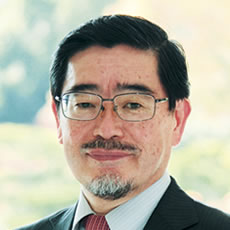
YAMAJI Kenji
Innovation for Cool Earth Forum (ICEF) Steering Committee;
President, Research Institute of Innovative Technology for the Earth (RITE);
Professor Emeritus, The University of Tokyo

Leila Niamir
Research Scholar, Energy, Climate, and Environment Program, International Institute for Applied Systems Analysis (IIASA)
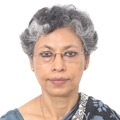
Joyashree Roy
Director, Centre for South and South-east Asia Multidisciplinary Applied Research Network on Transforming Societies of Global South, School of Environment, Resources and Development, Asian Institute of Technology
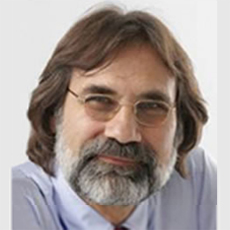
Nebojsa Nakicenovic
Innovation for Cool Earth Forum (ICEF) Steering Committee;
Vice Chair of the Group of Chief Scientific Advisors (GCSA)
to the European Commission;
Emeritus Scholar, International Institute
for Applied Systems Analysis (IIASA);
Emeritus Professor of Energy Economics,
Vienna University of Technology
(TU Wien)

Siva Gunda
Vice Chair, California Energy Commission

KONISHI-NAGANO Tomoko
Manager, Environmental Design Department, Environment Division, Sustainability Unit, Fujitsu Limited
Technology Session 2
15:15 - 16:15
Actions Needed for Realizing Carbon Neutrality in Heat and Transport Sectors with Hydrogen and E-fuel/E-methane
In hard-to-abate sectors, expectations for hydrogen and synthetic fuels (e-fuel and e-methane) have been growing. For instance, synthetic fuels made from CO2 and hydrogen are expected to play an important role in various sectors such as transport, industry, and household. In particular, electrification on its own will not be enough for decarbonizing the transport sector.
The uptake of hydrogen and synthetic fuels remains limited and faces challenges, and especially so in the transport sector, where it has the highest dependency on fossil fuels than any other sectors.
This session will discuss the latest trends and challenges of hydrogen and synthetic fuels, and what can be achieved by 2030 in order to realize carbon neutrality, mainly focusing on the viewpoint of the supply side to the transport, industry, and household sectors.
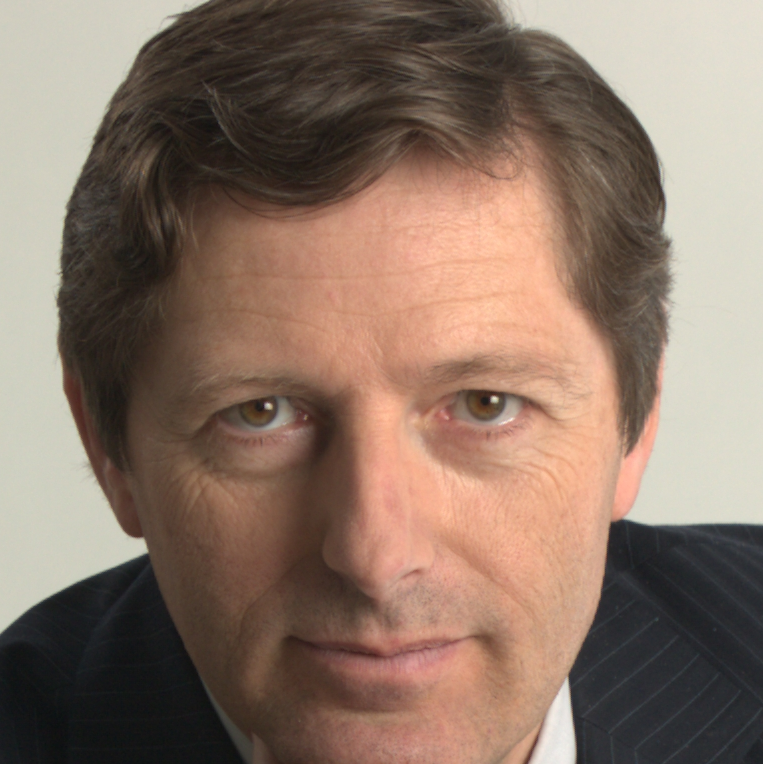
Georg Erdmann
Innovation for Cool Earth Forum (ICEF) Steering Committee;
Retired Professor for Energy Systems, Berlin University of Technology;
President of the Board, KSB Energie AG, Berlin
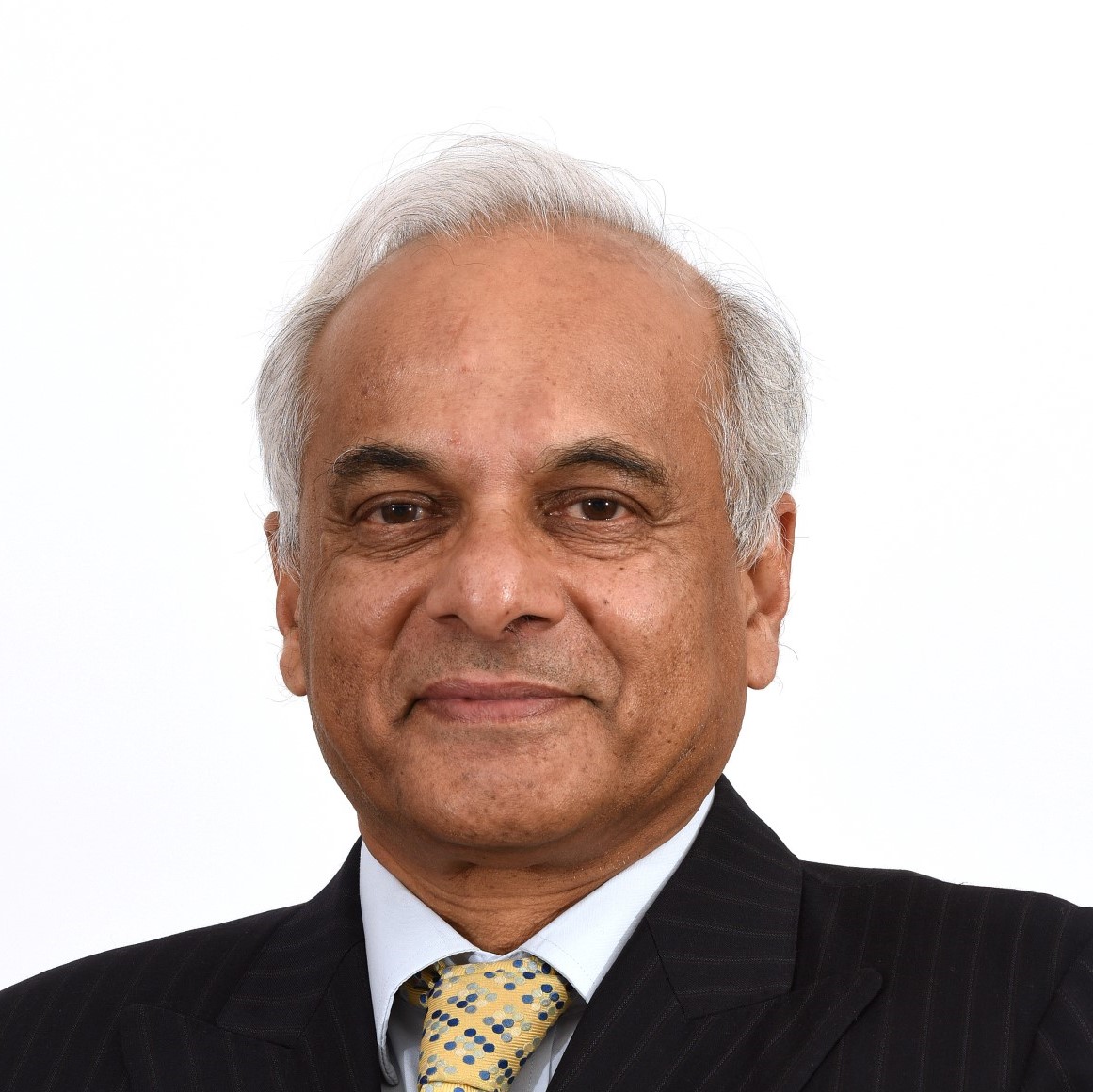
Vikram Singh Mehta
Innovation for Cool Earth Forum (ICEF) Steering Committee;
Chairman, Center for Social and Economic Progress (CSEP) Research Foundation
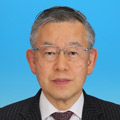
YABE Akira
Fellow, Sustainable Energy Unit, Technology Strategy Center (TSC), New Energy and Industrial Technology Development Organization (NEDO)
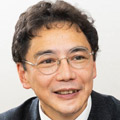
YAKABE Hisataka
Executive officer, Director of Hydrogen and Carbon Management, Technology Strategy Department, Digital Innovation Division, Tokyo Gas Co., Ltd.

Ruben Furi
Head of Government Affairs & Berlin Site Operations Manager, Enapter

Monika Griefahn
Speaker and Member, Board of the eFuel Alliance
Plenary Session 2
16:30 - 17:45
Energy Transition Leaving Nobody Behind
More than 150 countries have pledged their own Carbon Neutrality (CN), however there are different approaches in each country for realizing the goal. A holistic approach to tackle both the climate change issue and economic development is required to achieve CN on the global scale. We should also consider if rapid mitigation measures such as the sudden mass installation of renewable energy could accelerate the deterioration of energy security, raise unemployment for fossil fuel industry workers, and so on. The pathway to CN in each country is not the same for all countries, but each needs a local, comprehensive transition approach which incorporates an effective fossil fuel policy, industry policy, and environmental policy. This session discusses the compatibility of economic development and carbon neutrality, and the balance between climate change policy and other policies to minimize adverse economic and social impacts. Possible specific actions until 2030 will be explored.

Jon Moore
Innovation for Cool Earth Forum (ICEF) Steering Committee;
Chief Executive Officer, BloombergNEF

Hoesung Lee
(Non-attendance)
Innovation for Cool Earth Forum (ICEF) Steering Committee;
Chair of the Intergovernmental Panel on Climate Change (IPCC);
Endowed Chair Professor, Graduate School of Energy and Environment, Korea University

Vikram Singh Mehta
Innovation for Cool Earth Forum (ICEF) Steering Committee;
Chairman, Center for Social and Economic Progress (CSEP) Research Foundation

Rob Macquarie
Policy Analyst and Research Advisor to Lord Nicholas Stern, Grantham Research Institute on Climate Change and the Environment, London School of Economics and Political Science

Wang Nan
Vice President, Sustainable Business Origination Team, Sustainable Business Office, Solution Products Division, MUFG Bank, Ltd.

Shalu Agrawal
Senior Programme Lead, Council on Energy, Environment and Water (CEEW)
Side Event
8:30 - 10:30
Moonshot R&D Program (NEDO Project-related Event) “CO2 balance and outlook of the Moonshot DAC-U projects”
Direct Air Capture that directly capture CO2 in the atmosphere, and utilization for captured CO2 are drawing attention as important technology for achieving Carbon Neutral. NEDO is implementing multiple DAC-U projects which are DAC and CO2 utilization technology development projects, as part of the Moonshot Research and Development Program. In this session, we will discuss the CO2 balance and outlook in the DAC-U projects of the Moonshot Research and Development Program.
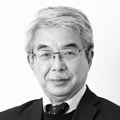
INABA Atsushi
President, Japan Life Cycle Assessment Facilitation Centre(LCAF)
YAMADA Hiroyuki
Director General, Moonshot Research and Development Program Office;
Director General, Frontier and Moonshot Technology Department, New Energy and Industrial Technology Development Organization (NEDO)

YAMAJI Kenji
Innovation for Cool Earth Forum (ICEF) Steering Committee;
President, Research Institute of Innovative Technology for the Earth (RITE);
Professor Emeritus, The University of Tokyo

MURATA Jo
Chief Officer, Moonshot Research and Development Program Office, Frontier and Moonshot Technology Department, New Energy and Industrial Technology Development Organization (NEDO)


Gregory Cooney
Senior Engineer, Office of Carbon Management, U.S. Department of Energy
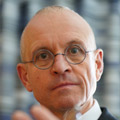
Volker Sick
Professor, Department of Mechanical Engineering, University of Michigan
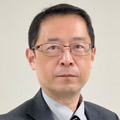
KODAMA Akio
Professor, Institute for Frontier Science Initiative, Kanazawa University

SUGIYAMA Masakazu
Director and Professor, Research Center for Advanced Science and Technology (RCAST), The University of Tokyo
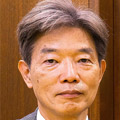
NOGUCHI Takafumi
Professor, Department of Architecture, Graduate School of Engineering,
The University of Tokyo

NORINAGA Koyo
Professor, Institute of Innovation for Future Society, Research Center for Net Zero Carbon Society, Nagoya University

FUKUSHIMA Yasuhiro
Professor, Department of Frontier Science for Advanced Environment,
Graduate School of Environmental Studies, Tohoku University
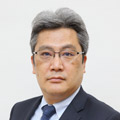
FUJIKAWA Shigenori
Distinguished Professor, International Institute for Carbon Neutral Energy Research, Kyushu University
Side Event
11:50 - 12:50
Roadmap Project (Low-Carbon Ammonia)
The Roadmap will
(1) briefly summarize the history of the global ammonia industry as well as the ammonia market today;
(2) explore production pathways for low-carbon ammonia;
(3) consider uses of low-carbon ammonia that can help contribute to achieving net zero emissions;
(4) consider questions associated with ecosystem, climate and health risks from scale-up and use of clean hydrogen and ammonia;
(5) examine policies for promoting the use of low-carbon ammonia to contribute to climate mitigation, and;
(6) offer findings and recommendations.
This session aims to share the draft of Low-Carbon Ammonia Roadmap and
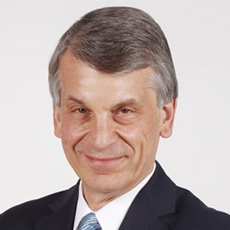
David Sandalow
Innovation for Cool Earth Forum (ICEF) Steering Committee;
Inaugural Fellow, Center on Global Energy Policy, Columbia University;
Co-Director, Energy and Environment Concentration, School of International and Public Affairs, Columbia University

Ann-Kathrin Merz
Research Assistant, Carbon Management Research Initiative, Center on Global Energy Policy, Columbia University;
Research Associate, First Ammonia;
Master’s Student, School of International and Public Affairs, Columbia University

Zhiyuan Fan
Research Associate, Center on Global Energy Policy SIPA, Columbia University

Corinne Scown
Deputy Division Director,
Sustainable Energy Systems Group, Energy Analysis & Environmental Impacts Division, Energy Technologies Area, Lawrence Berkeley National Laboratory;
Co-Founder & President,
Cyklos Materials;
Vice President, Life-cycle, Economics & Agronomy Division Joint BioEnergy Institute;
Head of Sustainability Analysis,
Energy Biosciences Institute, University of California, Berkeley
Side Event
13:30 - 14:15
Non-CO2 GHG Reduction
Non-CO2 greenhouse gases (GHG) include many substances and the two most difficult causes for reduction are methane (CH4) emissions from ruminants and nitrous oxide (N2O) emissions related to food production.
The Global Methane Pledge, which aims to reduce methane by 30% by 2030, was launched last year with the participation of over 100 countries including Japan. As such, for achieving carbon neutrality, rapid reduction of non-CO2 GHGs such as methane and nitrous oxide are as essential as the reduction of CO2.
The main sources of these gases are agricultural activities such as enteric fermentation, manure management, rice cultivation, and so on. Also, the reduction measures of these gases are said to be more cost-effective than the reduction measures of CO2 emission.
This session will explore the pathway to mitigating non-CO2 GHGs emitted from agricultural activities, as well as alternative approaches to the agricultural system such as new technologies, policies, diets, and so on.
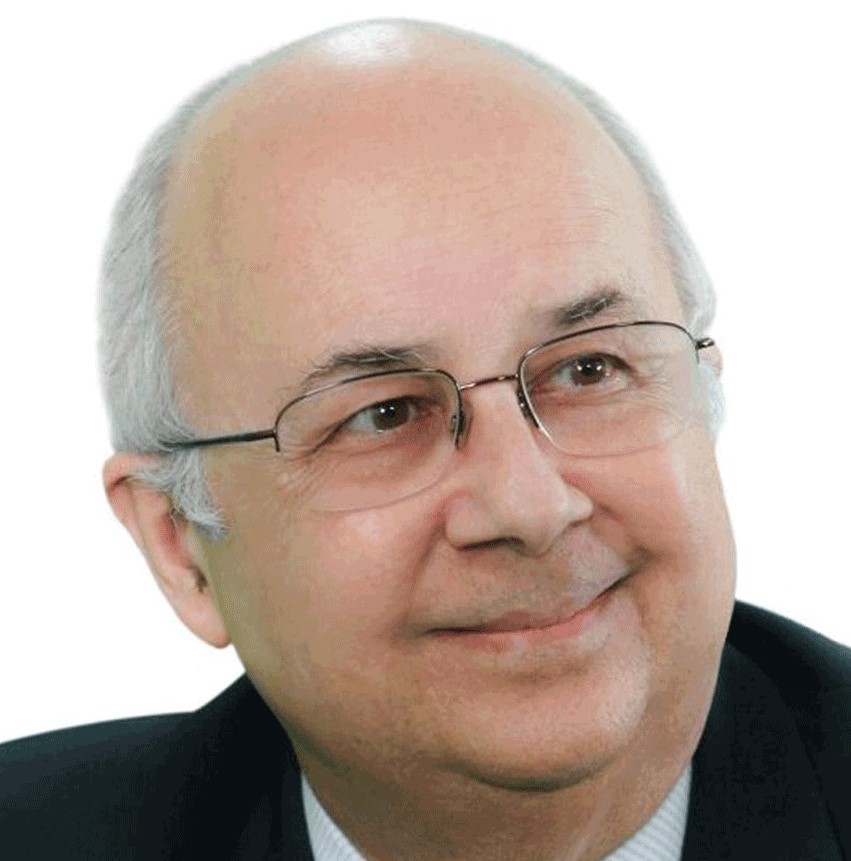
Ismail Serageldin
Innovation for Cool Earth Forum (ICEF) Steering Committee;
Emeritus Librarian of Alexandria; Founding Director of the Library of Alexandria

Uma Lele
Executive, International Association of Agriculture Economists (IAAE);
Officer, Institute of Economic Growth, University of Delhi

Francesco N. Tubiello
Senior Statistician, Food and Agriculture Organization of the United Nations (FAO);
Team Leader, Agri-Environmental Statistics, Food and Agriculture Organization of the United Nations (FAO)

YUKI Chika
Division 3 of Africa Department, Japan International Cooperation Agency (JICA)
Side Event
14:30 - 16:30
The Co-hosted Event by UNIDO “Facilitative decade of action towards just industrial decarbonisation responding to growing demands in developing/emerging countries”
Industries play a pivotal role for the achievement of the United Nations Agenda 2030. They provide various goods and services, which are essential part of the economy while also being responsible for major global GHG emissions. For example, the energy intensive two heavy industries, namely steel and cement, which produce the highly versatile and integral products in the modern life style, represent around 15% of global energy related CO2 emissions. Steady growth of the demands for the products in developing and emerging countries is expected to hike further in particular in post crisis period. Moving ahead, we need to find practical yet ambitions ways to decouple energy use and production growth, appropriately filling gaps in supply and demand while mobilizing technology and finance. This will require innovative policy instruments and approaches towards 2030 and beyond. The side event will gather leading companies as well as government officials and researchers from across the globe and discuss possible measures and enabling conditions as well as facilitative roles which international partnership and cooperation can play to make just transitions towards industrial decarbonisation without compromising economic growth and environmental integrity.
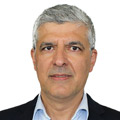
Tareq Emtairah
Director, Division of Decarbonization and Sustainable Energy, United Nations Industrial Development Organization (UNIDO)
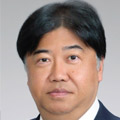
HOSHINO Takeo
Project Professor, Department of Material Engineering, Graduate School of Engineering, The University of Tokyo

Ayman Fathy
Executive Manager, Product Development & Quality Control, EZZ Steel
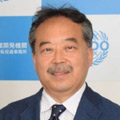
YASUNAGA Yuko
Managing Director, Directorate of Corporate Services and Operations (COR), United Nations Industrial Development Organization (UNIDO)
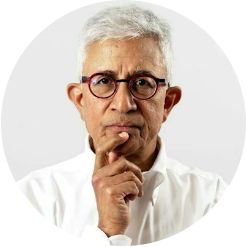
Valli Moosa
Innovation for Cool Earth Forum (ICEF) Steering Committee;
Head of the South African, Presidential Climate Commission;
Former President, International Union for Conservation of Nature and Natural Resources (IUCN)
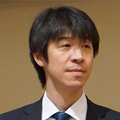
KAWAGUCHI Yukihirov
Director, Industrial Green Transformation, Manufacturing Industries Bureau, Ministry of Economy, Trade and Industry (METI)

Tiffany Vass
Senior Industry Energy Analyst, Energy Technology Policy Division, International Energy Agency (IEA)

Anupam Badola
Deputy CSO, Corporate ESG, Dalmia Cement (bharat) Ltd.
Side Event
17:50 - 18:35
Conversation between ICEF Steering Committees and Youth experts
ICEF invites experts from various fields to discuss combatting global warming using innovative solutions. Recognizing the role of diversity in bringing innovation, ICEF promotes gender equality and the involvement of young generations. Furthermore, ICEF believes that carbon neutrality by 2050 can only be achieved through engagement with the leaders in the next decades.
This session aims to incorporate diverse opinions from young speakers/participants to improve future ICEF initiatives and to further stimulate youth activities by providing a forum between young speakers/participants and renowned experts in energy and innovation (the ICEF Steering Committee members).

TANAKA Nobuo
Chair, Innovation for Cool Earth Forum (ICEF) Steering Committee;
Former Executive Director, International Energy Agency (IEA)

KURODA Reiko
Innovation for Cool Earth Forum (ICEF) Steering Committee;
Designated Professor, Frontier Research Institute, Chubu University;
Professor Emeritus, The University of Tokyo;
Member, G7 Germany GEAC (Gender Equality Advisory Council)

ASANO Yukie
Mineral Resources Diplomacy Staff, Metals Strategy Department, International Affairs Division, Japan Oil, Gas and Metals National Corporation (JOGMEC)

Ann-Kathrin Merz
Research Assistant, Carbon Management Research Initiative, Center on Global Energy Policy, Columbia University;
Research Associate, First Ammonia;
Master’s Student, School of International and Public Affairs, Columbia University

Wang Nan
Vice President, Sustainable Business Origination Team, Sustainable Business Office, Solution Products Division, MUFG Bank, Ltd.

YUKI Chika
Division 3 of Africa Department, Japan International Cooperation Agency (JICA)

Ruben Furi
Head of Government Affairs & Berlin Site Operations Manager, Enapter

Leila Niamir
Research Scholar, Energy, Climate, and Environment Program,
International Institute for Applied Systems Analysis (IIASA)

Aditi Verma
Assistant Professor, Nuclear Engineering and Radiological Sciences, University of Michigan
Thursday, October 6
Keynote 3
9:00 - 9:30
Dialogue between Mr. Francesco La Camera (Director-General of International Renewable Energy Agency (IRENA)) and Mr. TANAKA Nobuo (Chair of ICEF Steering Committee)
Technology Session 3
9:40 - 10:40
Carbon Dioxide Removal Technologies
Commitment to achieving carbon neutrality in 2050 has accelerated development and investment in economically and technically available carbon dioxide removal technologies that utilize engineering-based technology and natural resources, such as forests, soil, and ocean.
The latest IPCC AR6 WG3 report published in April 2022 mentioned that carbon removal technologies would become essential in achieving net negative carbon emissions.
However, to promote the deployment of carbon dioxide removal technologies, we need to develop methodologies for quantifying and certifying carbon removal from the atmosphere using such technologies and for ecological impact assessment.
In this session, we will discuss good governance for avoiding conflict with food production and the challenges and possible solutions related to MRV (Monitoring, Reporting, and Verification) of carbon removal using carbon dioxide removal technologies.

David Sandalow
Innovation for Cool Earth Forum (ICEF) Steering Committee;
Inaugural Fellow, Center on Global Energy Policy, Columbia University;
Co-Director, Energy and Environment Concentration, School of International and Public Affairs, Columbia University

Ismail Serageldin
Innovation for Cool Earth Forum (ICEF) Steering Committee;
Emeritus Librarian of Alexandria; Founding Director of the Library of Alexandria

Sally M. Benson
Innovation for Cool Earth Forum (ICEF) Steering Committee;
Deputy Director and Chief Strategist for the Energy Transition, White House Office of Science and Technology Policy

S. Julio Friedmann
Senior Scientist & Head Carbon Wrangler, Carbon Direct

Jennifer Wilcox
Principal Deputy Assistant Secretary, Fossil Energy and Carbon Management, US Department of Energy
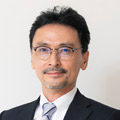
MIZUNASHI Wataru
Director General, Bioeconomy Unit, Technology Strategy Center (TSC), New Energy and Industrial Technology Development Organization (NEDO)

Giana Amador
Cofounder and Managing Director, Carbon180
Keynote 4
Technology Session 4
11:00 - 12:15
Speech by H.E. Rahm Emanuel (Ambassador Extraordinary and Plenipotentiary of the United States of America to Japan)
Sustainable Nuclear Systems
The amount of greenhouse gas tentatively reduced by COVID19 turned to increase again. Giving such a situation, a lot of measures are required to realize carbon neutral in the world. Importance of energy security increased along with the changing international situation. In such a situation, discussion of the importance of nuclear energy increased again.
On the other hand, sustainable conditions of radioactive waste such as sustainability requirements and design along with local communities are required for propelling nuclear energy.
In this session, we will summarize the research and development of nuclear energy and discuss sustainable nuclear system in the context of the timeframe aimed at carbon neutrality by 2050.
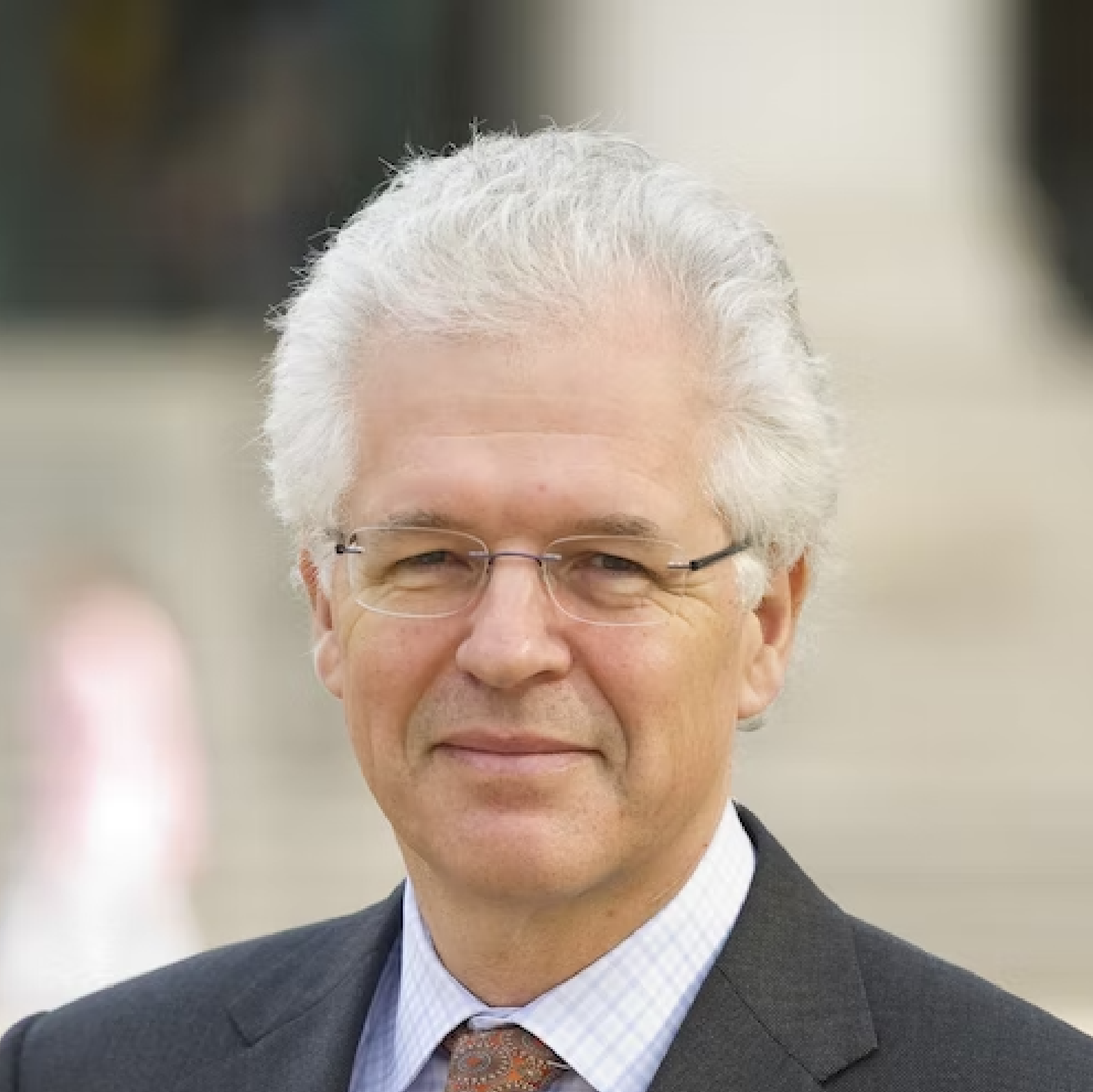
Richard K. Lester
Innovation for Cool Earth Forum (ICEF) Steering Committee;
Associate Provost, Massachusetts Institute of Technology

TANAKA Nobuo
Chair, Innovation for Cool Earth Forum (ICEF) Steering Committee;
Former Executive Director, International Energy Agency (IEA)

Eija-Riitta Korhola
Innovation for Cool Earth Forum (ICEF) Steering Committee;
Delegate of the Consultative Commission on Industrial Change;
Adviser in the EU affairs
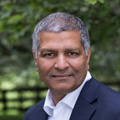
Irfan Ali
Senior Vice-President, Strategic Development & CIO, ARC Clean Energy, Inc.

FUJITA Reiko
Former President, Atomic Energy Society of Japan

Aditi Verma
Assistant Professor, Nuclear Engineering and Radiological Sciences, University of Michigan

SHIMOGORI Kei
Senior Researcher, Global Energy
Group 1, Strategy Research Unit,
the Institute of Energy Economics,
Japan (IEEJ)
Technology Session 5
14:00 - 15:15
How to Secure a Sustainable Value Chain in the Age of Resilience:
Critical Metals and Minerals?
We have witnessed successes and innovations in diversifying suppliers, sourcing/resourcing alternative materials, realizing a circular economy and design and redesign with alternatives. Yet, at the same time, our commitment and plans to achieve net zero carbon emissions are being challenged by increasing geopolitical complexity and perplexities, intensified climate change, pollution and loss of nature, long-standing justice and equality questions, in particular around land use and land rights of indigenous communities. Therefore, more urgently than ever, we need to gather collective wisdom and partnerships not only across the supply chain but also beyond it to rethink, redesign and reshape the value chain, and thus meet the challenges and demand of the marketplace and the clean energy and industrial revolution.
In light of the situation, this session will focus on innovations for securing a stable supply of critical metals and minerals in the context of achieving carbon neutrality, while considering the value chain from the production phase, impacts of international trends, alternative materials, and the circular economy.
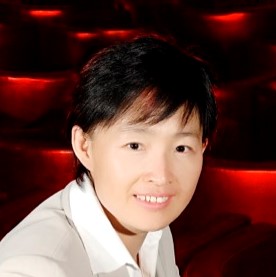
Changhua Wu
Innovation for Cool Earth Forum (ICEF) Steering Committee;
China Director, Office of Jeremy Rifkin;
Executive Director, Professional Association for China’s Environment;
Chief Strategist, CN Innovation;
Vice Chair, Governing Council, Asia Pacific Water Forum

David Sandalow
Innovation for Cool Earth Forum (ICEF) Steering Committee;
Inaugural Fellow, Center on Global Energy Policy, Columbia University;
Co-Director, Energy and Environment Concentration, School of International and Public Affairs, Columbia University

Valli Moosa
Innovation for Cool Earth Forum (ICEF) Steering Committee;
Head of the South African, Presidential Climate Commission;
Former President, International Union for Conservation of Nature and Natural Resources (IUCN)
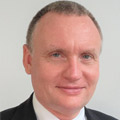
Dolf Gielen
Director, Innovation and Technology Center, International Renewable Energy Agency (IRENA)

Robert J. Johnston
Senior Research Scholar, Columbia Center for Global Energy Policy;
Founder and Managing Director, Eurasia Group’s Energy, Climate, and Resources Practice

ASANO Yukie
Mineral Resources Diplomacy Staff, Metals Strategy Department, International Affairs Division, Japan Oil, Gas and Metals National Corporation (JOGMEC)
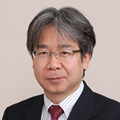
KATO Yasuhiro
Vice Dean, Professor, School of Engineering, The University of Tokyo

Natascha Viljoen
Chief Executive Officer, Anglo American Platinum Ltd.;
Member, The Anglo American plc group management committee
CV(151KB)

Jane Nakano
Senior Fellow, Energy Security and Climate Change Program, Center for Strategic and International Studies (CSIS)
Summarising Plenary
Session
15:30 - 16:30
Summarising Plenary Session
- Overlooking the Outcome of ALL sessions at ICEF2022 -
The moderator of each session will introduce the points discussed in the session and provide an overview of the discussions to date.

TANAKA Nobuo
Chair, Innovation for Cool Earth Forum (ICEF) Steering Committee;
Former Executive Director, International Energy Agency (IEA)

Jon Moore
Innovation for Cool Earth Forum (ICEF) Steering Committee;
Chief Executive Officer, BloombergNEF

YAMAJI Kenji
Innovation for Cool Earth Forum (ICEF) Steering Committee;
President, Research Institute of Innovative Technology for the Earth (RITE);
Professor Emeritus, The University of Tokyo

Georg Erdmann
Innovation for Cool Earth Forum (ICEF) Steering Committee;
Retired Professor for Energy Systems, Berlin University of Technology;
President of the Board, KSB Energie AG, Berlin

David Sandalow
Innovation for Cool Earth Forum (ICEF) Steering Committee;
Inaugural Fellow, Center on Global Energy Policy, Columbia University;
Co-Director, Energy and Environment Concentration, School of International and Public Affairs, Columbia University

Changhua Wu
Innovation for Cool Earth Forum (ICEF) Steering Committee;
China Director, Office of Jeremy Rifkin;
Executive Director, Professional Association for China’s Environment;
Chief Strategist, CN Innovation;
Vice Chair, Governing Council, Asia Pacific Water Forum
Closing Session
16:30 - 17:05
Closing Session
1. Closing Remarks by Mr. ISHIZUKA Hiroaki (Chairman of New Energy and Industrial Technology Development Organization (NEDO))
2. Announcement of the Roadmaps by Mr. David Sandalow (Steering Committee of Innovation for Cool Earth Forum (ICEF)) and Mr. TAGAMI Takahiko (Senior Coordinator and Manager of Climate Change Group, Climate Change and Energy)
3. Announcement of the Statement from the Steering Committee by Prof. Dr. YAMAJI Kenji (Steering Committee of Innovation for Cool Earth Forum (ICEF))
4. Final Thoughts on the Event by Mr. TANAKA Nobuo (Chair of ICEF Steering Committee)
Side Event
12:10 - 13:10
Roadmap Project (Blue Carbon)
The Blue Carbon Roadmap: carbon captured by the world's ocean and coastal ecosystems’ focuses on blue carbon, as one of the negative emission technologies, captured and stored by 1) mangroves, tidal marshes, and seagrasses in the coastal zone, and 2) the cultivation of seaweed such as kelp and sargassum, which has been remarkably advanced in recent years. The Roadmap presents the potentials for carbon removals towards 2050, challenges in measurement, reporting and verification (MRV) for carbon credits, and innovative technologies that can be used for MRV. This session aims to share the outline of the Blue Carbon Roadmap and explore the key questions related to blue carbon as a decarbonization strategy in the years and decade ahead.

David Sandalow
Innovation for Cool Earth Forum (ICEF) Steering Committee;
Inaugural Fellow, Center on Global Energy Policy, Columbia University;
Co-Director, Energy and Environment Concentration, School of International and Public Affairs, Columbia University
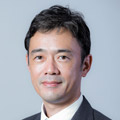
WATANABE Atsushi
Senior Research Fellow, Ocean Policy Research Institute, Sasakawa Peace Foundation

Carlos Duarte
Distinguished Professor, Marine Science, King Abdullah University of Science and Technology

KOHSAKA Ryo
Professor, Graduate School of Agricultural and Life Sciences/ Faculty of Agriculture, The University of Tokyo
Side Event
13:30 - 15:30
NEDO Green Innovation Fund Projects Symposium “A Challenge toward Global Supply Chain Carbon Neutrality”
Toward the realization of global supply chain carbon neutrality, innovations in various technology fields as well as integration of these technologies are requested, such as for the construction of alternative fuel supply infrastructure of hydrogen and ammonia etc., introduction of next generation mobility such as zero-emission vessels, and the application of GHG reduction technologies. Achieving global supply chain carbon neutrality also requires the cooperation between countries involved in distribution.
In this session, we will introduce efforts by the public and private sectors of each country, including Japan’s Green Innovation Fund Projects, toward the realization of global supply chain carbon neutrality, and discuss economic measures and ideal forms of international cooperation to accelerate these efforts.

HIEKATA Kazuo
Professor, Graduate School of Frontier Sciences, The University of Tokyo
TANAKA Tetsuya
Deputy Director-General, Industrial Science and Technology Policy and Environment Bureau, Ministry of Economy, Trade and Industry (METI)
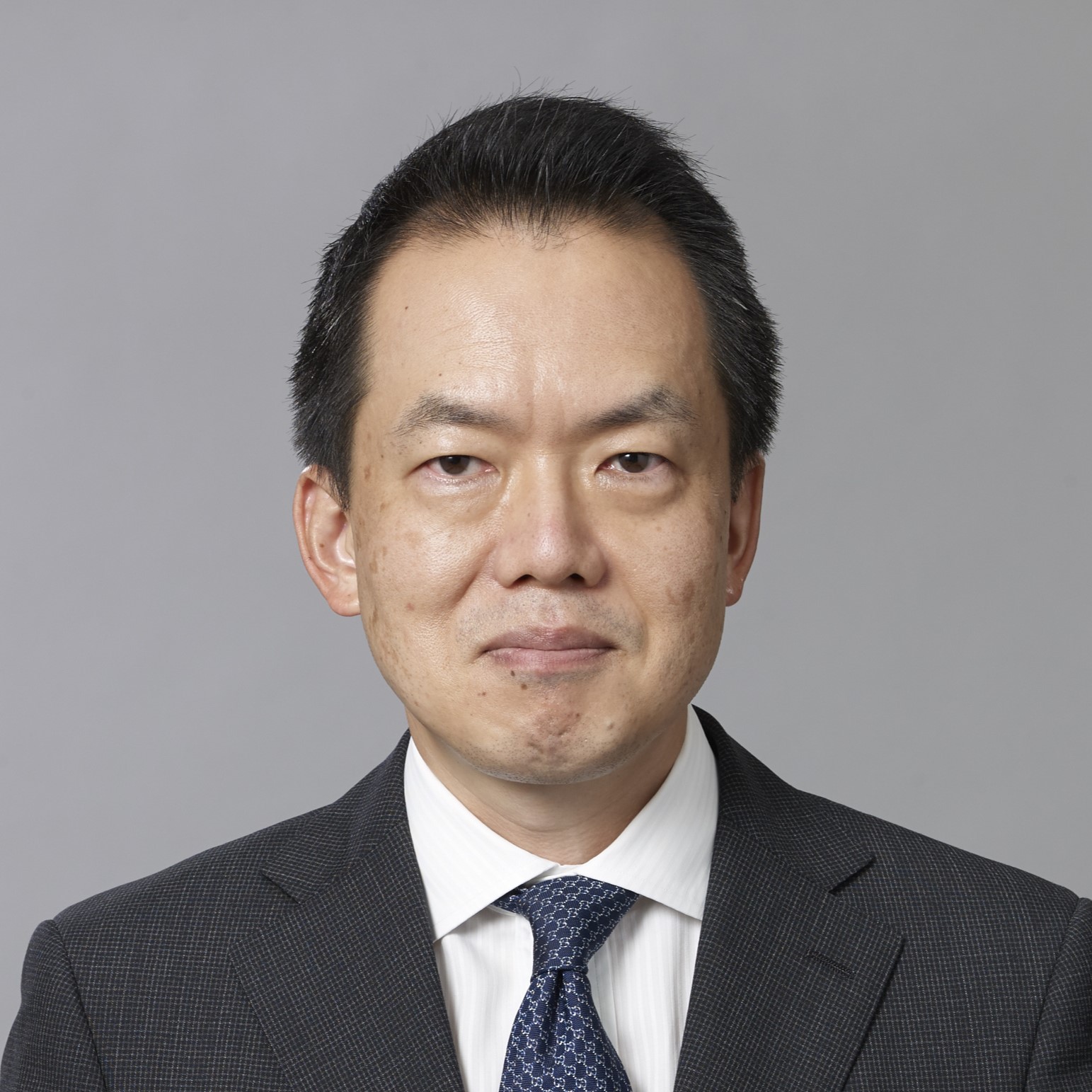

IIMURA Akiko
Director General, Green Innovation Fund Projects Coordination Office and Technology Strategy Center (TSC), New Energy and Industrial Technology Development Organization (NEDO)

TAMURA Akihiro
Director, Ocean Development and Environment Policy Division, Maritime Bureau, Ministry of Land, Infrastructure, Transport and Tourism (MILT)

Rebecca Thomson
Manager, Hydrogen Strategy Team, Department of Climate Change, Energy, the Environment and Water,
the Australian Government

Wei Jie Lau
Director, Partnerships, Global Centre for Maritime Decarbonisation

NISHIMURA Motohiko
Executive Officer, Hydrogen Strategy Division, Kawasaki Heavy Industries, Ltd.

Komatsu Yu
Director - Asia, Yara Clean Ammonia
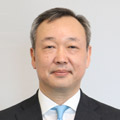
YOKOYAMA Tsutomu
General Manager, Green Business Group, NYK LINE

Peter Kirkeby
Principal Specialist, Technical promotion, Two-Stroke Promotion & Customer Support,
MAN Energy Solutions SE
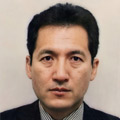
AKAMATSU Takeo
General Manager, Green Innovation Business Unit, Plant Project, Marine & Aerospace Division, Machinery Company, ITOCHU Corporation
